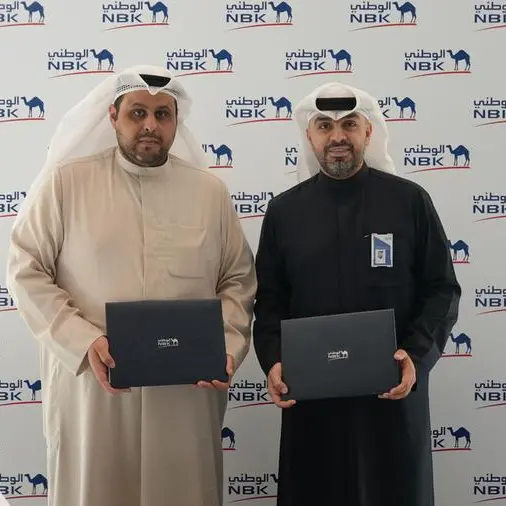
Out of the more than 206 000 mobile malware attacks blocked by Kaspersky (https://africa.Kaspersky.com) solutions for the Middle East, Turkey and Africa (META) region in just 6-months measured, between January to June 2021, over 30 000 of these attacks combined originated from Nigeria (14 071), Kenya (10 697), and South Africa (5 499).
Significantly, for African countries monitored, Nigeria only trails Egypt (19 466) by the number of attacks blocked, pointing to how prevalent mobile threats have become in this highly connected country. In fact, Kaspersky’s latest research (https://bit.ly/3oR80X5) shows that when looking at the top ten countries by share of users attacked by mobile malware Nigeria places eighth (at 11.76%). Even though Kenya and South Africa might not feature as prominently, the mobile malware threat is still a concern, along with the shift to more targeted based attacks these countries are seeing.
The top three most prevalent malware behaviours that Kaspersky has seen in Kenya and Nigeria are Trojans, Trojan-Downloaders; and Trojan-Droppers. In South Africa, these are Trojans, Trojan-Proxy; and Trojan-Downloaders.
A Trojan is a type of malware that is often disguised as legitimate software which attackers can use to try and gain access to user systems. As the name suggests, Trojan-Downloaders download and install new versions of malicious programmes, including Trojans and Adware on victim computers. Meanwhile, Trojan-Droppers usually save a range of files containing malicious programmes to the victim’s drive. Once installed, a Trojan-Proxy allows an attacker to use the infected device as a proxy to connect to the Internet.
“Mobile malware remains a significant threat for corporate and personal users across Africa. These attacks are usually very diverse with hackers leveraging a range of methodologies and technologies to compromise victim’s devices. Trojan-Downloaders and Trojan-Droppers are especially dangerous given their potential to contain significantly damaging payloads,” says Bethwel Opil, Enterprise Sales Manager at Kaspersky in Africa.
In addition to installing cybersecurity solutions on their mobile devices, like Kaspersky Total Security (https://bit.ly/3Ayn7XG), here are a few additional ways users can enhance their security:
- Create a strong password. By putting a strong password on their smartphone, the device can become unusable if it is lost or stolen and the password attempt fails a certain number of times.
- Do not trust SMS. Mobile malware uses text messages, so users should never respond to requests for credit card details or other private information.
- Check your browser for the lock symbol. The lock icon in the address bar indicates that the sight is secure when entering personal data.
Install apps from reputable sources. Popular shopping sites such as Amazon or eBay have their own mobile applications. You must check to see they are the official apps from the company before you initiate a download. This can be done by checking the developer information and user ratings on the download page.
Distributed by APO Group on behalf of Kaspersky.For further information please contact:
Nicole Allman | INK&Co.
Cell: +27 83 251 2769
nicole@inkandco.co.za
About Kaspersky:
Kaspersky is a global cybersecurity company founded in 1997. Kaspersky’s deep threat intelligence and security expertise is constantly transforming into innovative security solutions and services to protect businesses, critical infrastructure, governments and consumers around the globe. The company’s comprehensive security portfolio includes leading endpoint protection and a number of specialized security solutions and services to fight sophisticated and evolving digital threats. Over 400 million users are protected by Kaspersky technologies and we help 250,000 corporate clients protect what matters most to them. Learn more at africa.Kaspersky.com.
Follow:
Facebook: bit.ly/3DDVuPC
Twitter: bit.ly/38x6EHE
YouTube: bit.ly/3yx5oPp
Instagram: bit.ly/2WFGBLM
Blog: bit.ly/3gPs6MS
© Press Release 2021
Disclaimer: The contents of this press release was provided from an external third party provider. This website is not responsible for, and does not control, such external content. This content is provided on an “as is” and “as available” basis and has not been edited in any way. Neither this website nor our affiliates guarantee the accuracy of or endorse the views or opinions expressed in this press release.
The press release is provided for informational purposes only. The content does not provide tax, legal or investment advice or opinion regarding the suitability, value or profitability of any particular security, portfolio or investment strategy. Neither this website nor our affiliates shall be liable for any errors or inaccuracies in the content, or for any actions taken by you in reliance thereon. You expressly agree that your use of the information within this article is at your sole risk.
To the fullest extent permitted by applicable law, this website, its parent company, its subsidiaries, its affiliates and the respective shareholders, directors, officers, employees, agents, advertisers, content providers and licensors will not be liable (jointly or severally) to you for any direct, indirect, consequential, special, incidental, punitive or exemplary damages, including without limitation, lost profits, lost savings and lost revenues, whether in negligence, tort, contract or any other theory of liability, even if the parties have been advised of the possibility or could have foreseen any such damages.



















